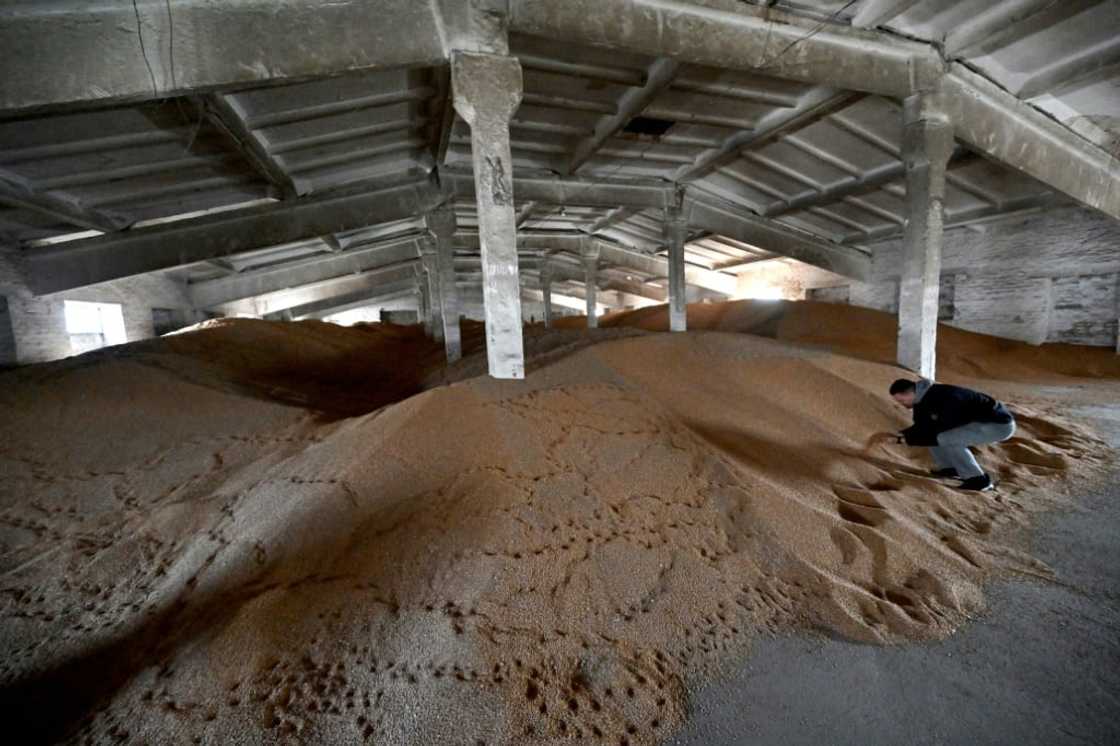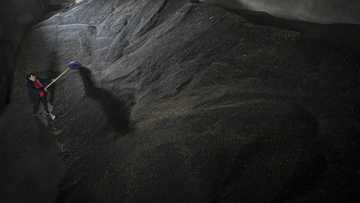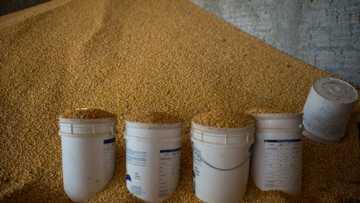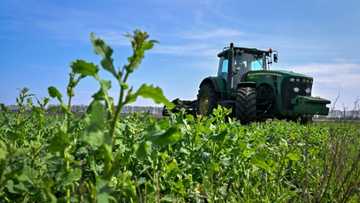Ukrainian farmers worried as allies choke off export route

Source: AFP
PAY ATTENTION: Never miss breaking news – join Briefly News' Telegram channel!
Petro Potapenko looks at the piles of grain on his farm and wonders if he will be able to export his production now that Ukraine's western neighbours have imposed import restrictions.
The 34-year-old farmer bends down and runs his hands through the yellow and white grain kept in a warehouse in the village of Kypiachka, around 100 kilometres south of the capital Kyiv.
Over a year following Russia's invasion that has devastated Kyiv's agricultural industry, Ukraine's western neighbours -- Poland, Slovakia and Hungary -- have imposed temporary bans on Ukrainian grain and food imports.
Poland, Kyiv's key ally against Russia, introduced the ban following protests by local farmers.
Hungary and Slovakia -- which also border Ukraine -- introduced similar restrictions.
Potapenko felt the effects of the ban straight away.
PAY ATTENTION: Сheck out news that is picked exactly for YOU ➡️ click on “Recommended for you” and enjoy!
As soon as the Polish ban was announced last week, Ukrainian sunflower oil manufacturers stopped buying seeds for lack of a guarantee of being able to export their production to the EU.
"I can no longer sell my seeds," Potapenko said.
Russia's invasion has severely limited the traditional export channel of Ukrainian grain via the Black Sea. A considerable part of that has been westwards, via EU nations.
Ukraine's farmers are now blocked from all sides, Potapenko said .
"This is happening in the context of Russia slowing down the work of the grain corridor (via the Black Sea), and now there are more problems on the border with Poland," he said.
"It's a big problem, we still have large grain surpluses."
'The grain has nowhere to go'
Further south in the Cherkasy region, in central Ukraine, farmers are also feeling the bite of the new restrictions imposed by Kyiv's allies.
Ihor Novytsky, the deputy director of a local agricultural firm, said exports are closed on all sides.
"Europe is closed, all the ports are closed (by Russia)," he said.
"The grain has nowhere to go."
Novytsky said that if the restrictions continue, Ukrainian farmers will "simply go bankrupt".
He said he believes the decision by Poland's nationalist government is a political ahead of parliamentary elections later this year.
"In Poland, elections are coming soon, so they blocked it."
Strict controls
Warsaw partially lifted the ban on Friday, but across the border in Ukraine, few farmers were reassured.
Polish officials have said strict controls will be imposed to ensure that shipments transit the country and are not sold on the local market.
This includes placing electronic seals on shipments, which will be escorted by Polish customs officers for the first week.
Potapenko said this may be a "little better" than a total blockade, but that "additional controls" at the border will likely increase shipping costs.
"The more time the carrier wastes, the more it will charge you later for the time spent queueing, passing inspections."
The tensions between Kyiv and its European neighbours arose as uncertainty looms over the scheduled May 18 renewal of a deal ensuring the Black Sea grain corridor is operational.
An estimated 60 percent of Ukrainian grain exports pass through the Black Sea.
Russia, another major global grain exporter, has threatened to suspend the crucial global grain deal, complaining that its own production is hampered by Western sanctions.
After over a year of battling Russian forces, some in Ukraine seemed to see Russia's hand behind the crisis with neighbouring countries.
"It smells of Russian involvement," said Andriy Dykun, the head of the Ukrainian grain association.
"Someone organises the protests (of European farmers), publicises them, it does not happen itself," he said.
Launched from the east, south and north, Russia's invasion of Ukraine ravaged the agricultural industry in a country renowned for its fertile black soil.
Before the invasion, Ukraine was the world's fourth largest exporter of corn and on its way of becoming the third exporter of wheat.
Since then, vast swathes of cultivated territory have either fallen under Russian occupation or become unusable following fighting that left fields pockmarked by shells and possibly littered with mines and unexploded ordonnance.
Agricultural production has fallen dramatically. The grain and oilseed harvest fell from 106 tonnes in 2021 -- a record -- to 65 million tonnes in 2022.
It could fall further to around 50-55 million tonnes this year, according to experts.
PAY ATTENTION: Сheck out news that is picked exactly for YOU ➡️ click on “Recommended for you” and enjoy!
Source: AFP





